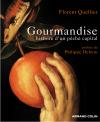Colloque International – Le pouvoir de l’imagination, du XVIe au XVIIIe siècle
Organisation : Koen Vermeir (SPHERE, CNRS).
Comité Scientifique: Raffaele Carbone (CESR), Liz Claire (IIAC/EHESS), Rafael Mandressi (CAK/EHESS), Martine Pécharman (CRAL/MFO/EHESS), Christine Pigné (CLAM), David Rabouin (SPHERE/Paris7).
Avec le soutien de L’institut des Sciences de la Communication du CNRS, projet PEPS « Imaginations » et du Centre de recherche du château de Versailles.
6 décembre: Versailles
7-8 décembre: Paris
6 décembre 2010
Auditorium du Château de Versailles
Château de Versailles, Place d’armes, 78000 Versailles.
09.45 : Welcome
10.00 – 10.10: Koen Vermeir (SPHERE, CNRS) « Introduction »
10.10 – 11.00: Keynote lecture: Guido Giglioni (Institut Warburg) « Reality and Its Surrogates: The Imagination in the Renaissance »
Coffee break
11.15 – 12.00: Cynthia Fleury (CERSP Muséum/ISCC) « Une théorie de l’imagination créatrice, noétique et éthique : de Sohravardi, platonicien de Perse (XIIe siècle) à Henry Corbin (XXe siècle) »
12.00 – 12.45: Jörn Steigerwald (Université de Tübingen) « Les forces visible de l’imagination créatrice: Bellori, Marin, Arioste »
Lunch
14.15 – 15.00: Tristan Dagron (ENS Lyon) « La formation du rêve chez Ficin: considérations cliniques »
15.00 – 15.45: Saverio Ansaldi (Université de Montpellier III Paul Valéry) « L’imagination en puissance. La construction des images chez Ficin »
Coffee break
16.00 – 16.30: Emiliano Ferrari (Università degli Studi de Milan / Université Jean Moulin Lyon-3) « Processus imaginatifs et vie des passions chez Montaigne : psychologie et éthique »
16.30 – 17.15: Karin Westerwelle (Université de Münster) « Montaigne et la force de l’imagination »
17.15 – 18.00: Christophe Bouriau (Université Nancy 2) « Dignité humaine et imagination selon Montaigne »
7 décembre 2010
Institut des Sciences de la Communication du CNRS
20, rue Berbier-du-Mets, 75013 Paris, Métro Gobelins.
09.30 – 10.15: Allison Kavey (City University New York) « Imagination, Knowledge, and Passion as the Trinity in Agrippa’s De Occulta Philosophia Libri Tres »
10.15 – 11.00: Hans De Waardt (Université d’Amsterdam) « Demons, black bile and other causes of delusion: Johan Wier probing witches »
Coffee break
11.20 – 11.50: Filips Defoort (Université de Leuven) « Imagination and evil: on the role of imagination as the origin of monstrosity in Jacob Boehme’s (1575-1624) theosophy »
11.50 – 12.20: Guy Claessens (Université de Leuven) « Proclus and Kepler on the Power of the Geometrical Imagination »
Buffet lunch
13.30 – 14.00: Radu Toderici (Université de Cluj-Napoca) « Bernard Lamy et l’imagination de l’orateur »
14.00 – 14.30: Alice Vintenon (Université Paris Ouest-Nanterre) « Affectus sequuntur phantasiam: l’utilisation médicale et rhétorique de la « véhémente imagination » à la Renaissance »
Coffee break
15.00 – 15.45: Roberto Poma (Université de Paris XII) « Extase et guérison : sur l’intensification de la force de l’imagination du sujet malade »
15.45 – 16.30: Rafael Mandressi (CAK/EHESS) « L’imagination contagieuse: diagnostic médical et possession démoniaque au XVIIe siècle »
Coffee break
16.45 – 17.15: Stephen Boyd Hequembourg (Université de Harvard) « Monism and Imaginative World-Making in John Milton and Margaret Cavendish »
17.15 – 17.45: Rodolphe Dalle (Université de Nantes) « Le statut de l’imagination
dans la conception de l’enthousiasme poétique du Père Le Moyne »
8 décembre 2010
Institut des Sciences de la Communication du CNRS
20, rue Berbier-du-Mets, 75013 Paris, Métro Gobelins.
09.30 – 10.15: Sabine Arnaud (Institut Max Planck Berlin) « La dernière carte ou le pari de l’imagination »
10.15 – 10.45: Marion Saliceti (Université de Paris I et de Neuchâtel) « Malebranche : Une analyse psychosomatique de la force de l’imagination »
Coffee break
11.00 – 11.45 : Marie-Frédérique Pellegrin (Université Jean Moulin-Lyon 3) « La contagion imaginative chez Malebranche: le cas des loups-garous »
11.45 – 12.30: Paolo Fabiani (Comune di Firenze) « The ancient art of memory. Rhetoric and the New Science of the imagination »
Buffet lunch
13.45 – 14.15: Coralie Bournonville (Université de Picardie Jules Verne) « l’imagination libertine : représentations de l’imagination dans les romans-mémoires libertins du xviiie siècle »
14.15 – 15.00: Hans Adler (Université de Wisconsin) « The Plasticity of the Possible and the Possibility of Plasticity in the 18th Century »
Coffee break
15.15 – 16.00: Cédric Le Bodic (Maison des sciences de l’Homme Ange-Guépin, Nantes.) « Le corps et la médecine au 18è siècle à travers l’imagination et la sexualité »
16.00 – 16.45: Liz Claire (IIAC/EHESS) « De l’imagination, de l’enthousiasme et du génie au XVIIIe siècle: la danse, un art ou une maladie ? »
16.45 – 17.00: Concluding discussion and remarks

 Dance research journal, Volume 42, Number 2, Winter 2010.
Dance research journal, Volume 42, Number 2, Winter 2010.